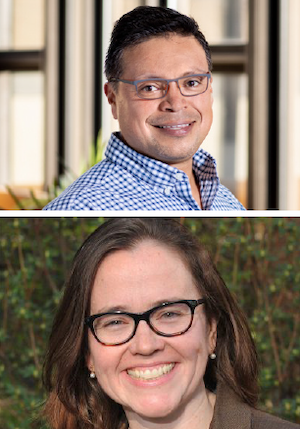Diego Román and Lisa Barker are working on a project that aims to improve education for Latinx students in rural Wisconsin by training their teachers in how to facilitate discussion about topics that directly affect local communities.
The project was one of 15 chosen in June 2021 to receive a grant through UW–Madison’s Understanding and Reducing Inequalities Initiative, which is funded by the Office of the Vice Chancellor for Research and Graduate Education, and the Wisconsin Alumni Research Foundation.

Román, the principal investigator, is an assistant professor in the Department of Curriculum and Instruction, and Barker, a co-investigator, is an affiliate faculty member with the same department and the executive director of the School’s Office of Professional Learning and Com- munity Education (PLACE). Patrick Robinson, associate professor and associate dean of agriculture and natural resources in the Division of Extension, is also a co-investigator on the project.
Rural school districts often struggle to find teachers who are prepared to work with shifting student demographics. The project’s summary notes that in Wisconsin, “the Latinx population is the fastest growing racial/ ethnic group — accounting for 46 percent of the state’s population growth. Yet many students classified as English learners encounter educational barriers due to teachers who don’t speak their languages and are not trained in culturally and linguistically relevant pedagogy.”
The study is bringing together science and social studies teachers working in rural Wisconsin for training in how to engage their Latinx students in examining local, controversial, and socio-scientific topics, such as water quality. During the first year of the project, 12 participating teachers explored culturally sustaining pedagogies (CSP), the complexity of Latinx identities, facilitating civil discourse related to environmental topics using language supports, and engaging students with science and environmental knowledge as it relates to Latinx communities and CSP. The project will recruit more teachers during its second year.
The overarching goal is to understand how participating in this professional learning influences teachers’ understanding of the local socio-scientific issues facing their students and their ability to facilitate classroom discussion about these controversial topics.